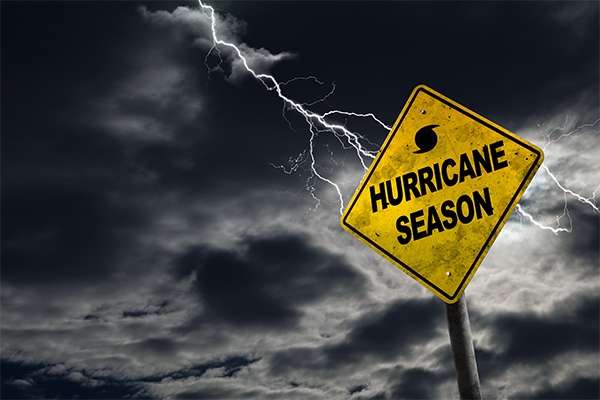Hurricane Preparedness Checklist – National Hurricane Preparedness Week 2021
National Hurricane Preparedness Week—which is scheduled for May 9-15 this year—encourages individuals to evaluate their personal hurricane risks and implement measures to keep themselves and their homes protected during a hurricane.
Hurricanes have become an increasingly prevalent concern throughout many Southern states and along much of the East Coast. In fact, the National Oceanic and Atmospheric Administration reported a record-breaking 30 named storms during the 2020 hurricane season—resulting in 430 deaths and totaling $47 billion in overall costs.
As the 2021 hurricane season approaches, prepare yourself and your household with these tips.
Before A Hurricane
- Review your community’s hurricane risk level. The location of your home can determine potential wind and flood hazards.
- Register for email updates from the National Weather Service and any available local alert systems to be aware of hurricane warnings or evacuation orders in your area.
- Develop a hurricane response plan and practice it regularly with members of your household.
- Prepare a hurricane kit with nonperishable food, water, medicine, emergency power sources, a first-aid kit and important documents.
- Limit your home’s hurricane exposures by keeping drains and gutters clean, installing storm shutters on windows and doors and storing vehicles in a safe location.
- Review your homeowners policy with your insurance professionals to ensure you will be covered in the event of a hurricane.
- Secure and reinforce your roof, windows and doors, including garage doors.
- Consider building a FEMA safe room designed for protection from high winds and flood waters.
- Learn how and when to turn off gas, water and electricity.
After A Hurricane
- If you evacuated your home, don’t return until local officials confirm it is safe to do so.
- When returning home, wear protective clothing and stay away from pools of floodwater, wet or damaged electrical equipment and downed power lines.
- Photograph all property damage and save receipts for any recovery expenses stemming from the hurricane to help file an insurance claim.


